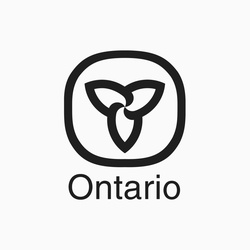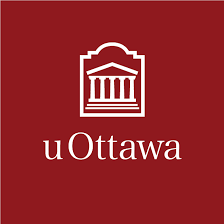
SkillsAdvance Ontario Pilot
At a glance
- No Condition
- Open Date : August 11, 2022
- Closing date : December 4, 2023
- All industries
- Ontario
- Non-profit
- Public or Parapublic institution
- For-profit business
- All revenue ranges
- All organization sizes
- All groups
- Employment and Training
- New immigrants & refugees
- Business owners / entrepreneurs
- Nonprofits / charities
- Academia / students
- Low-income individuals / families
- Minority groups
- All structures
- Provincial
Overview
Gain access to employment and training services required to recruit and advance workers with the right essential, technical, and employability skills.
Activities funded
SkillsAdvance Ontario Pilot aims to enhance the skills development and training opportunities for individuals to meet the workforce needs in Ontario. The eligible activities focus on providing integrated employment services and training programs.
- Integrated employment services to assist job seekers in acquiring the skills needed for available jobs.
- Training programs tailored to specific sectors to improve participants' skills and employment outcomes.
- Follow-up services to monitor and support the progress of participants after program completion.
- Collaboration with employers to ensure training aligns with industry needs and job opportunities.
- Collection of data on participants’ employment outcomes to evaluate program effectiveness.
Eligibility
Eligibility for the SkillsAdvance Ontario Pilot program is determined by specific requirements related to the applicant's profile and proposed activities.
- Applicants must be registered employers or training providers located in Ontario.
- The program targets incumbent workers, meaning participants must be current employees of the businesses applying for support or must be identified by employers as potential candidates for training opportunities.
- The training proposed must align with job retention, skills advancement, or career progression objectives.
- Participants in training programs must be legally eligible to work in Ontario and Canada.
- Employers are typically required to contribute a portion of the training costs.
- The proposed training must fill specific skills gaps identified by the employer and align with the business needs.
Who is eligible?
The SkillsAdvance Ontario Pilot grant is intended for organizations and partnerships that provide demand-led training and supports for job seekers and workers to gain employment within specific sectors. The target applicants typically include employers, training providers, and service providers who can collaborate to deliver the program objectives.Eligible applicants are typically:- Employers who can offer employment or training opportunities within key industries or sectors.- Organizations capable of designing and implementing sector-specific training initiatives aligned with workforce needs.- Service providers experienced in delivering employment and skills development programs.- Training institutions or educational providers that can offer the necessary training aligned with the program’s goals.These applicants must be committed to working within the framework of the Employment Ontario network and aligning with the province's workforce development strategies.Who is not eligible
This grant program does not specify any particular types of companies or industries that are excluded. Eligibility criteria are not explicitly mentioned in the provided context.
Eligible expenses
The SkillsAdvance Ontario Pilot focuses on equipping participants with sector-specific skills and employment training programs to meet the demands of designated industries. The eligible activities aim to enhance job readiness and employment outcomes for individuals through targeted interventions.
- Customized skills training programs aligned with industry needs and priorities.
- Delivery of employment services including job placement and retention planning.
- Development of partnerships with employers to facilitate job placements.
- Provision of wraparound supports to ensure successful program completion and transition to employment.
- Monitoring and evaluation of training outcomes to continuously improve program effectiveness.
Eligible geographic areas
This grant is overseen by the Ministry of Labour, Immigration, Training and Skills Development, Ontario, which suggests that the eligibility may be geographically focused within Ontario. No specific geographical areas are explicitly listed in the provided context.
Selection criteria
Evaluation and selection criteria for this grant include: - Alignment of proposed project with the objectives of the SkillsAdvance Ontario pilot project. - Demonstrated capacity to engage employers and provide employment and training services. - Clarity and feasibility of the proposed project plan. - Ability to recruit and advance workers with essential, technical, and employability skills. - Potential impact on workforce development in key growth sectors. If there are no evaluation and selection criteria mentioned for this grant, the answer will be "nothing."
How to apply
Review Program Guidelines
- Access the SkillsAdvance Ontario Pilot program guidelines from the Ministry of Labour, Immigration, Training and Skills Development website.
- Ensure that your organization meets all the eligibility criteria outlined in the program guidelines.
- Understand the objectives and reporting requirements associated with the grant.
Prepare Proposal
- Draft a comprehensive project proposal that aligns with the program's objectives.
- Outline the workforce skills training initiatives and targeted outcomes for the participants.
- Provide detailed information regarding the project's timeline, budget, and expected impacts.
Gather Supporting Documents
- Compile necessary documents such as proof of organization’s legal status and financial statements.
- Include letters of support from community stakeholders or partners.
Complete Application Form
- Fill out the official application form available on the Ministry's website or portal as required.
- Ensure that all information provided is accurate and complete.
Submit Application
- Submit the completed application form along with all supporting documents before the specified deadline.
- Applications may be submitted electronically through the designated online platform or via email as instructed by the Ministry.
Confirmation of Receipt
- Wait for a confirmation email from the Ministry acknowledging the receipt of your application.
- Keep the confirmation email and any reference numbers for your records.
Additional information
Here are additional relevant details for the Employment Status Questionnaire (ESQ):
- Questions from the ESQ might be administered verbally or electronically as part of the application process.
- It has been developed to improve data collection processes across Employment Ontario programs.
- The questionnaire aims to capture a consistent definition of employment status across programs.
- Data collected through the ESQ will help in better monitoring and evaluating program results.
- Clients are expected to answer questions about their experience and perception on services received.
- Results from the ESQ inform future program planning and adjustments.
Frequently Asked Questions about the SkillsAdvance Ontario Pilot Program
What is the SkillsAdvance Ontario Pilot?
What is the deadline to apply?
Who is eligible for the SkillsAdvance Ontario Pilot program?
What expenses are eligible under SkillsAdvance Ontario Pilot?
Who can I contact for more information about the SkillsAdvance Ontario Pilot?
Where is the SkillsAdvance Ontario Pilot available?
Is the SkillsAdvance Ontario Pilot a grant, loan, or tax credit?
More programs like this

Expanded Energy Management Program
Independent Electricity System Operator (IESO)
Southwestern Ontario Development Fund (SWODF) — Business project loans
Government of Ontario
Court Challenges Program (CCP)
University of Ottawa
EnAbling Change Program
Government of Ontario
Talent Opportunities Program — Student Work Placement Program
Ontario Chamber of Commerce (OCC)
WILWorks program — Student Work Placement Program
Excellence in Manufacturing Consortium (EMC)
AcceleratiON Program
Ontario Creates
Artiste en résidence canadien en début de carrière dans le domaine de l'urbanisme
University of Toronto (UOFT)
